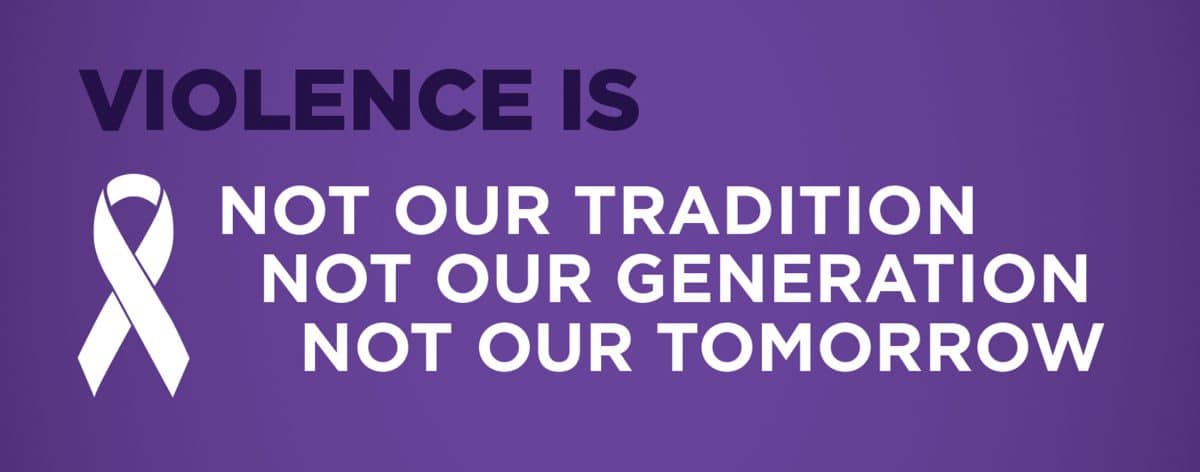By Kayla Woody, House of Hope Prevention Specialist
The world we live in today provides fast-paced news reporting and 24-hour media coverage on any crime or event. There is not much that goes unnoticed or overlooked. However, there seem to be many stories that remain untold in our Native communities. These stories include 506 of missing and murdered Indigenous women and girls in urban areas as identified by the Urban Indian Health Institute between 2000 and 2016.

The amount of missing and murdered Indigenous women is staggering. The Centers for Disease Control and Prevention revealed that Native women are murdered at a rate 10 times higher than other ethnicities, and murder is the third leading cause of death. As included in a 2018 report by the UIHI, the National Crime Information Center disclosed 5,712 cases of missing and murdered Native American women and girls were reported in 2016, the latest period for which data was available at the time of release.
“The numbers are likely much higher because cases are often under-reported, and data isn’t officially collected,” said former U.S. Senator Heidi Heitkamp (D-N.D.).
According to reports from the National Congress of American Indians, about 84.3 percent of Native women experience violence and 56 percent experience sexual violence that is overwhelmingly committed by individuals outside the Native American community. Due to a Supreme Court decision from 1978, Native American tribal courts have no jurisdiction over non-Natives.
“If a white person commits murder or rape against a Native American person, the federal government would have jurisdiction over those crimes, instead of the tribe or state government,” said Cheryl Bennett, an Arizona State University professor studying hate crimes that target Indigenous peoples.
However, according to a 2010 Government Accountability Office report, when tribal law enforcement sent cases like these to the FBI and U.S. Attorney Offices, prosecutors declined more than two-thirds of them.
Native communities are not receiving the protection or assistance they need from crimes like these. Due to the issue, Senators have stepped up, creating legislation to change the processes our Federal government takes with these cases. In October 2017, Senator Heitkamp introduced Savanna’s Act, which was the first piece of legislation to specifically address missing and murdered Indigenous women and girls. The legislation has been named after Savanna LaFontaine-Greywind.
Savanna was added to the list of missing and murdered Indigenous women after she was abducted and killed in Fargo, North Dakota, by Brooke Crews, a non-Native woman, who strangled Savanna and then cut her 8-month-old child from her womb. Crews’ was sentenced to life in prison without the chance of parole. The legislation was aimed to improve tribal access to federal crime information databases, increase coordination among all levels of law enforcement, and create standardized protocols for responding to cases of missing and murdered Indigenous women. Unfortunately, in 2018 the bill was blocked and was required to return to the beginning of the legislative process.
Last year, the bill was reintroduced by Senator Lisa Murkowski of Alaska and was unanimously approved on Dec. 6. It passed the Senate in March of 2020 and then passed the House of Representatives in September of 2020.
“Senator Heitkamp was a true leader on this issue and an advocate for Indigenous peoples throughout her tenure in the Senate. I’m proud to reintroduce this bill and continue our efforts to bring much-needed attention and coordination to the issue of murdered and missing Native women,” Senator Murkowski said.
On Oct. 10, President Donald Trump signed the bill into law. This will now require the Justice Department to develop guidelines for responding to cases of missing or murdered Native Americans, report statistics on those cases, provide required law enforcement agency training, and to work with tribes and tribal organizations in implementing its strategy.
Another piece of legislation that was introduced by Senator Murkowski is the Not Invisible Act. This is the first bill in history to be introduced and supported by four enrolled members of federally recognized tribes. The legislation was passed alongside Savanna’s Act and will increase intergovernmental coordination to identify and combat violent crime within Native American lands.
If you or someone you know is experiencing intimate partner violence, stalking, and/or sexual assault and would like more information, please contact the House of Hope at 405-275-3176 or visit us online at facebook.com/cpnhouseofhope.
